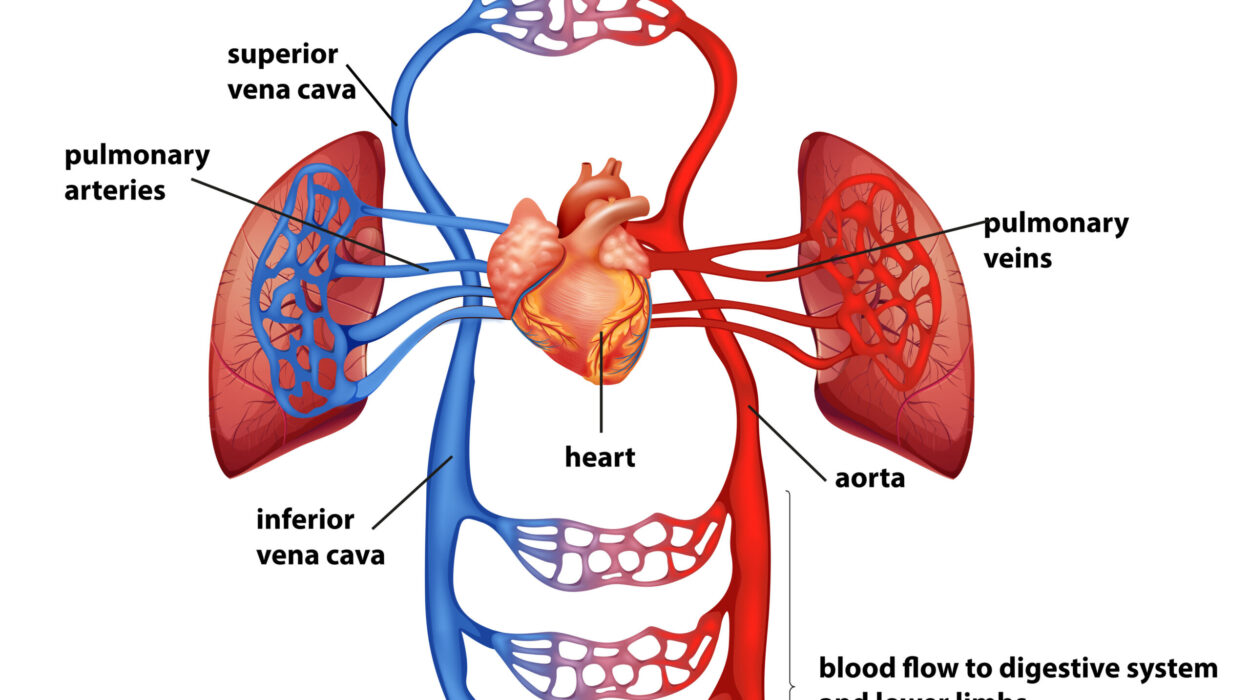Somewhere along the winding road of adulthood, many people—especially women—are taught that putting themselves first is selfish. The moment they pause to take a breath, indulge in solitude, or say “no” to yet another obligation, guilt creeps in like a shadow. There’s a cultural script that glorifies busyness and self-sacrifice, framing self-care as a luxury rather than a necessity. If you’re not constantly available, productive, and helpful, are you failing?
This persistent belief can feel impossible to shake. Even when the body whispers for rest and the mind begs for stillness, guilt often drowns those pleas with reminders of unwashed dishes, unread emails, or people who “need” you. This emotional tangle turns self-care from a healing act into an internal battlefield.
But here’s the truth: self-care isn’t indulgent. It’s essential. You can’t pour from an empty cup, and you certainly can’t thrive when you’re running on fumes. Prioritizing yourself isn’t selfish—it’s survival. The real question is: how can we embrace self-care wholeheartedly, without apology or guilt?
Understanding What Self-Care Really Means
To begin undoing the guilt, we must first challenge the definition. Too often, self-care is imagined as bubble baths, face masks, or expensive spa retreats. And while those things are lovely, they’re only part of the picture.
Self-care, in its truest form, is any act that restores your energy, nourishes your soul, protects your mental health, or honors your boundaries. It’s brushing your teeth when depression makes it hard to get out of bed. It’s calling a friend when your heart feels heavy. It’s drinking water, logging off social media, or telling someone, “I need space right now.” Sometimes, self-care looks like making tough choices, not pretty ones.
It’s also deeply individual. What refuels one person may drain another. Introverts may find solitude healing, while extroverts seek connection to feel whole. For some, cooking is meditative; for others, it’s a chore. The trick is to listen—to your body, your mind, and your inner compass. Your version of self-care should fit your life, not an Instagram aesthetic.
When you start viewing self-care as basic maintenance for your well-being rather than an occasional escape, it becomes easier to accept it as a right, not a reward.
The Cultural Conditioning That Keeps You Exhausted
From a young age, many people are conditioned to believe their worth lies in how much they do for others. Women, in particular, are raised with silent mantras: Be nice. Be helpful. Don’t complain. Sacrifice. Give. Smile. This conditioning creates an invisible pressure to constantly show up, give more, be more—and never ask for anything in return.
Media, tradition, religion, and family dynamics often reinforce this narrative. The “strong woman” archetype doesn’t rest; she just keeps pushing. The “good mother” always puts her children first. The “hard worker” grinds through burnout. The “good friend” answers every call, even when she’s falling apart inside. And if you don’t match those roles? Cue the guilt.
Breaking free from this mindset requires unlearning. It requires a new framework in which your health, peace, and happiness are valid priorities. You’re not on this Earth to be everyone’s emotional lifeline. Your needs matter, and acknowledging them is not weakness—it’s wisdom.
Let’s be clear: saying yes to yourself does not mean saying no to everyone else. But it does mean creating space for your own humanity amid the noise of responsibility. You’re allowed to matter to yourself.
Why Guilt is the Gatekeeper—and How to Disarm It
Guilt is a powerful emotion. It’s the internal guard dog of your values, trained to bark whenever you veer off course. But sometimes, that guard dog is working off faulty instructions. It barks not because you’re doing something wrong, but because you’re doing something unfamiliar.
If you’re used to equating self-worth with productivity or usefulness, slowing down feels like failure. If you’ve always prioritized others’ comfort over your own, asserting boundaries feels like betrayal. That knot in your stomach when you take time for yourself? That’s not proof you’re selfish. It’s a sign that your nervous system is reacting to a new habit.
Disarming guilt requires awareness. The next time guilt surfaces, pause and ask: What am I afraid will happen if I take care of myself right now? Often, you’ll uncover fears of judgment, rejection, or perceived inadequacy. These fears are valid but not always true. The people who love you want you well. The world won’t crumble if you rest. Your worth doesn’t vanish when you press pause.
With repetition, guilt loses its grip. The more often you choose yourself—lovingly, unapologetically—the quieter that inner protest becomes. Self-care becomes second nature, not a source of shame.
The Art of Saying No Without Apology
“No” is a complete sentence, but many of us treat it like a confession. We pad it with excuses, sugarcoat it with guilt, or avoid saying it altogether until we’re silently seething with resentment. The inability to say no is a fast track to burnout.
Why is it so hard? Because saying no can feel like a rejection—of others, of expectations, of obligation. But in reality, it’s a powerful affirmation of your limits and your needs. Every “no” to something draining is a “yes” to something nourishing. Whether that’s sleep, solitude, joy, or simply space to breathe.
Learning to say no gracefully starts with believing you have the right to do so. You don’t need to justify your choices to everyone. You don’t owe your time to anyone who doesn’t respect it. Saying no doesn’t make you cruel; it makes you conscious. It means you’re choosing what aligns with your energy and values.
When you stop apologizing for honoring your boundaries, you make room for a life that feels authentic—rather than one built around constant people-pleasing.
Creating Rituals of Renewal in a Busy World
Self-care doesn’t need to be grand or time-consuming. In fact, the most transformative care often happens in small, consistent rituals woven into everyday life. These rituals are not interruptions—they are investments.
Maybe it’s ten minutes of morning stillness before the world intrudes. Maybe it’s an evening walk where you let your thoughts unravel under the sky. It might be a playlist that grounds you, a meal you cook with intention, or a journal where your unspoken truths find a voice.
These moments matter. They tell your nervous system, “You are safe here.” They remind you that life isn’t just about output but also about presence. They connect you to yourself when everything else pulls you away.
You don’t need hours. You need awareness. You don’t need perfection. You need permission.
Reframing Productivity: You Are Not a Machine
In a world that measures value by output, rest can feel like rebellion. We’re praised for our hustle, rewarded for our exhaustion, and judged for our leisure. But you are not a machine. You were not born to be busy. Your soul is not a spreadsheet, and your worth is not measured in crossed-off to-do lists.
True productivity is not about how much you do, but how fully you show up—for your work, your relationships, and your life. And you can only show up when you’re not depleted.
Imagine a life where rest is not the reward at the end of the work, but a non-negotiable part of the rhythm. Where your value isn’t up for debate every time you pause. Where your humanity is not a hurdle to overcome, but the very thing that makes your life rich and real.
That life is possible. But it starts with reclaiming rest as a right, not a privilege.
Self-Care in the Face of Crisis or Chaos
Sometimes, life is not calm. There are seasons of chaos—grief, illness, financial strain, parenting, global uncertainty—when self-care feels like a faraway dream. During these times, it’s easy to abandon ourselves completely in the service of survival.
But these are precisely the moments when self-care becomes most critical. And it may look very different. It might be setting a five-minute timer to breathe. It might be crying in the shower and letting it count as release. It might be texting a friend, asking for help, eating something nourishing, or simply going to bed early.
In crisis, self-care is not about escaping reality—it’s about staying tethered to yourself within it. It’s about doing the small things that keep you connected to your core when the world feels like it’s spinning off its axis.
Grace, not guilt, is the medicine you need in hard seasons. Grace to do less. Grace to feel deeply. Grace to survive without thriving for a while.
Letting Go of Perfection and Embracing Compassion
Perhaps the greatest barrier to sustainable self-care is perfectionism. We want to get it right. We want our routines to be flawless, our choices to be correct, our growth to be linear. But real self-care is messy. It evolves. It adapts. Some days, it means choosing vegetables over sugar. Other days, it means choosing compassion over shame when you don’t.
Let go of the fantasy that you’ll always have the time, energy, or motivation. You won’t. And that’s okay. You’re allowed to be tired. You’re allowed to falter. You’re allowed to be human.
The goal is not to become someone who never struggles—but someone who turns toward themselves with kindness in the midst of struggle. That’s the heart of guilt-free self-care: not flawless execution, but unwavering compassion.
The Ripple Effect: How Your Self-Care Heals Others Too
There’s a quiet irony in the fear that self-care is selfish. Because the truth is, when you care for yourself, everyone around you benefits. You’re more patient, present, and grounded. You model boundaries and balance for your children, your friends, and your community. You become a lighthouse—not by burning out, but by staying lit.
Your well-being doesn’t subtract from others. It adds. Your joy creates space for others to pursue their own. Your rest invites others to slow down too. Your honesty gives permission for vulnerability. When you honor yourself, you shift the collective culture away from martyrdom and toward mutual nourishment.
Self-care is not a solo act. It’s a ripple. And the world needs more people who are brave enough to start one.
A New Paradigm: Living from Wholeness, Not Emptiness
What if we built lives around the belief that our needs matter? What if we measured success not by exhaustion, but by alignment? What if self-care was not the backup plan, but the blueprint?
This is the invitation: to create a life where guilt no longer governs your decisions. A life where you listen inward before reaching outward. Where you pause often, rest deeply, and love yourself without conditions. Where you remember that you are not a machine, a martyr, or a means to someone else’s end.
You are a person. A whole, wondrous, worthy person. And you deserve care—not because you’ve earned it, but because you exist.






